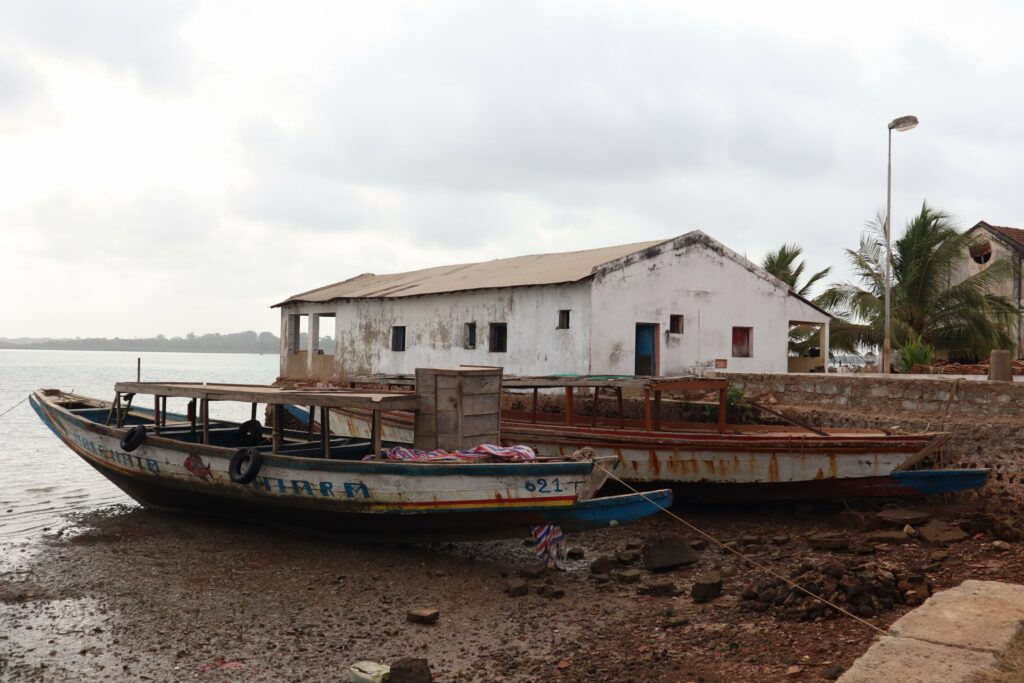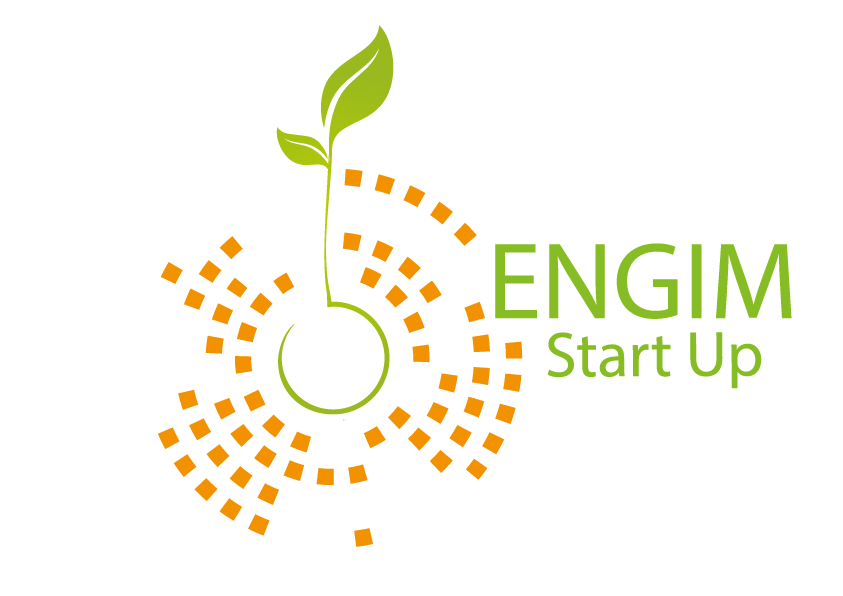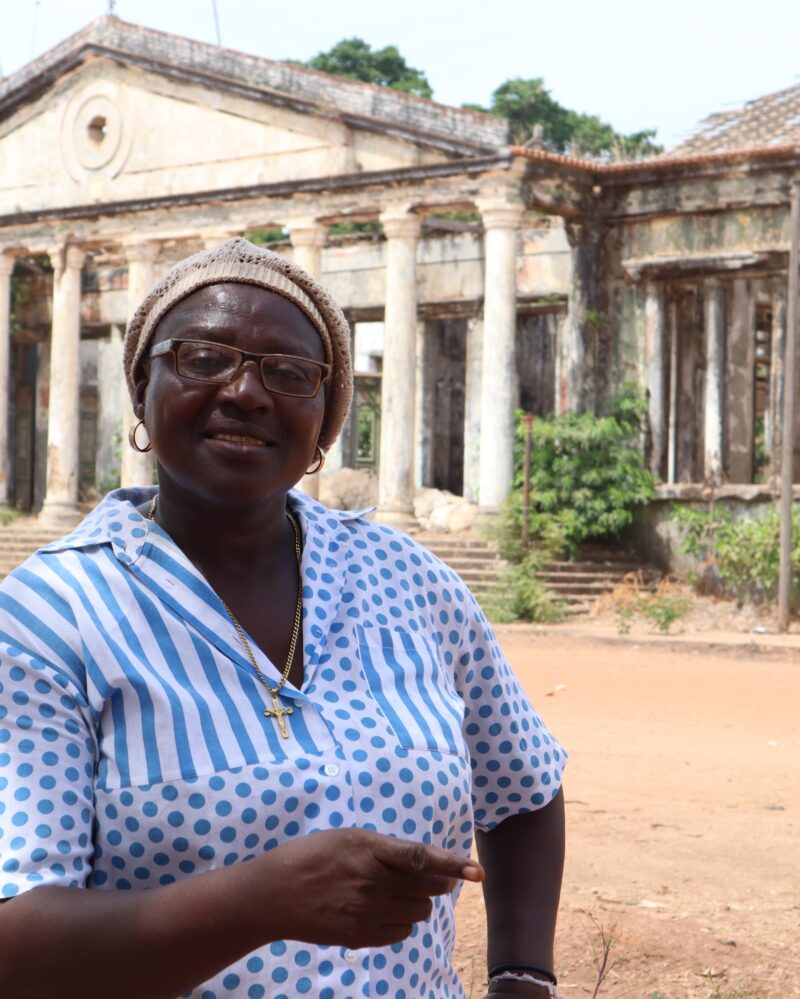Four hours by boat separate Bissau, the capital of Guinea-Bissau, from Bolama, once the first capital of what was then Portuguese Guinea. The canoes that make the trip from the mainland three days a week are soon filled with goods of all kinds to supply the island’s 10,000 inhabitants. It is a long journey that reflects the logistical difficulties in the Bolama-Bijagós region and, at the same time, highlights the challenges that the local communities that make up the region must face in order to advance their socio-economic development.
Bolama is stately, with its wide avenues and historic buildings, and tranquil. Amidst this tranquillity stands out the energy of Maria Carlota Pereira, a born fighter from the region who moves around the city on her motorbike and is already known by her neighbours as “Carlota the optimist”. “I live with the reality of Bolama,” she explains, “because here it is necessary to find solutions to move forward. I am always moving forward, with strength and confidence in the decisions I make”. She is one of the beneficiaries of the project “LIFE 3×6: Local Innovation Fund for Entrepreneurship”, which aims to improve and scale up the impact of the project “Limiting the impact of COVID-19. A 3×6 approach” that the NGO ENGIM has implemented in different neighbourhoods of the city of Bissau from October 2021 to December 2022, in partnership with UNDP and with funding from the government of Japan. More than 300 innovative businesses were created in the framework of this project and the goal now is to replicate the good results obtained in the regions of Cacheu, Bafata, Gabu and Bolama-Bijagós, which present high levels of vulnerability according to the “Vulnerability Mapping and Analysis to Better Identify the Left Behind in Guinea-Bissau”, recently published by the UNDP.
The LIFE project was launched in January 2023 with the goal of supporting entrepreneurs in the four regions with the implementation of their business ideas, with a special focus on women and youth. Since then, the beneficiaries have received training in project management to prepare them to move forward on this path. “The beneficiaries have learned about concepts and methodologies that they didn’t know”, says Saido Injai, one of the two monitors accompanying the project beneficiaries in the region, “which is important especially for those who were already running a business”. From the 152 initial applications received by the project management team in the region, 40 people were selected to participate in the training and from there, 26 people working on 15 different enterprises are now starting to receive the materials to start running their businesses.

Of these 26 people, 14 are women and Carlota is one of them. The potential for the development of the blue economy in the region is enormous, and she has chosen this sector for her business idea within the framework of the project. “I want to be an entrepreneur to buy fish, preserve it and sell it”, she says with determination, “so that I can help my community and the island’s population in general to have fish available when the market is not working”. Something that may seem simple at first glance becomes an odyssey when there are no adequate conditions for preserving fish, no systems with stable power generation capacity, and when access to credit and financing are as complicated as they are in Bolama, where there are no bank branches. This is why the project will help Carlota with the purchase of a freezer and all the necessary elements to run it with solar energy. She, like the other beneficiaries, has also received support with the process to formalise her enterprise and with the opening of a bank account in Bissau.
Carlota’s and ENGIM’s paths crossed at the right time and now, she explains with satisfaction, “we also have to meet the expectations”. Her long-term goal is to put everything she has learned so far into action and that the success of her business will help other people find a job. “I would like everyone in Bolama to get a job, and we should help each other to do so”, she concludes, living up to her nickname.
Article by Elena Touriño lorenzo







